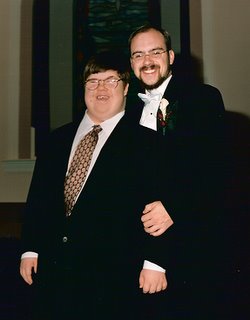Toward a Greater Good Theodicy - Part One
My next several posts will deal with the issue of Theodicy - God's relation to evil. It is my hope that this first post will allow us to understand some of the different approaches that people take when dealing with this issue, and allow us to define some terms that are important to this discussion.
In volume one of his Systematic Theology, Charles Hodge draws from the entirety of scripture to make these three assertions about God. First, that the sovereignty of God is universal, it extends over all his creatures from the highest to the lowest. Second, that this sovereignty is absolute. There is no limit to be placed upon His authority, God does as He sees fit. Third, God’s sovereignty is immutable. It cannot be ignored or rejected, it binds all of creation, as physical laws bind the physical universe. Here, Hodge explains that God is divinely omnipotent, a view that is shared with millions of orthodox Christians around the world. Equally, it is widely accepted that God is also infinitely good. Hodge argues for this by examining God’s benevolence and mercy towards fallen man.
In themselves, these two views of God are easy to accept, but this acceptance becomes much more difficult when they intersect with the reality of evil. C. S. Lewis calls this the "problem of pain" suggesting that the presence of evil supports the notion that God lacks either goodness, omnipotence, or both. Theodicy attempts to solve the problem of pain by reconciling God’s omnipotence and goodness with the reality of evil.
There are four main approaches to theodicy. There is Illusionism, which seeks to redefine the classical definitions of good and evil, pain and pleasure. There is also Finitism, which seeks to redefine our conception of God, arguing that God is either not totally omniscient, or totally good. Stemming from Finitism is Dualism, or the belief that there are both good and evil forces at work in the world, locked in a battle for superiority. And finally there is the Instrumental view, or Greater Good Theodicy, which sees evil as a means to an unforseen, better end.
Illusionism is a blanket term that encompasses the various systems of belief that view pain and evil as a construct of the mind and not an external reality. The Illusionist view is very prominent in pantheistic circles, and was advanced by the philosopher Benedict Spinoza. To advance his theodicy, Spinoza drew from the classical Rabbinic theodicy of Maimonides and Gersonides, who argued that while God is perfectly good and powerful, there really is no evil. Today, Illusionism can be found among those who have been influenced by an Eastern Worldview as evidenced by the teachings of Aurobindo, an Indian sage who believes that pain is a matter of perspective as opposed to a matter of fact. Illusionism has also been embraced by Christian Science, who argues that evil has no reality but is instead a false illusion of the material sense. Within the Christian community, shadows of Illusionism can be found in the Augustinian tradition. I am hesitant to place Augustine in the Illusionist camp as his theodicy defies categorization, however, the main tenet of his theodicy is Illusionist in nature. Augustine argued against the existence of evil based on the fact that God is good, and the fact that God declared all of creation good. Therefore, Augustine concluded that what we perceive as evil is nothing more than the absence of goodness, much in the way that darkness is nothing more than the absence of light.
The second approach to theodicy is finitism, which argues that God is not capable of preventing evil, either because He is not totally omniscient or because He is not totally good. The most recent and well known attack on God’s omniscience is found in the theology of Open Theism. In his book Most Moved Mover, Clark Pinnock argues that God voluntarily limited himself for what he calls a "logic of love theodicy." In his theodicy, Pinnock argues that man was created for the purpose of creating loving relationships. These relationships required freedom, and thus the risk that man would choose evil over good. Furthermore, Pinnock argues that his logic of love theodicy is superior to the theodicies of classical Christianity as it absolves God of guilt, and explains certain evils that originate independent of human action. God’s goodness has been questioned in recent years by many Jewish thinkers who attempt to understand God’s apparent apathy in the face of the Holocaust. Norman Geisler refers to this as a "Sadist Theodicy" because it advocates the notion that God enjoys human suffering, and points to authors such as Elie Wiesel who is unwilling to exonerate God from all responsibility of this genocide. Proponents of the Sadist Theory argue that their ability to turn to God and trust Him was destroyed by their radical suffering.
Stemming from the finitism approach is dualism, the belief that there are both good and evil forces in the world struggling with each other for superiority over the created order. This approach had its most mature voice in the Manichean philosophers. The Manichean system postulated the existence of two eternal and equally powerful gods, one of them good (light), and one of them evil (darkness). The Manicheans believed that these two gods work against each other in the lives of men, causing goodness and evil. Unfortunately, a less refined dualistic system has found its way into many of our churches, where laypersons have begun to view Satan as God’s evil foil, struggling against God in an epic, ongoing battle for mankind.
The final approach to theodicy is the Instrumental view, or Greater Good Theodicy. This system argues that evil is allowed into creation to serve as a means to an unforseen greater good. This view has dominated classical theodicy and is presently held by the vast majority of evangelical Christians today. In this system, evil remains evil in the traditional sense, but it is understood as a necessary force in creation as the universe is better with it than without it. Examples of this can be seen in the animal world where one animal kills and eats another. While this may be evil in some sense, it is also very necessary as it contributes to the continuation of the created order, which rests upon this process.



